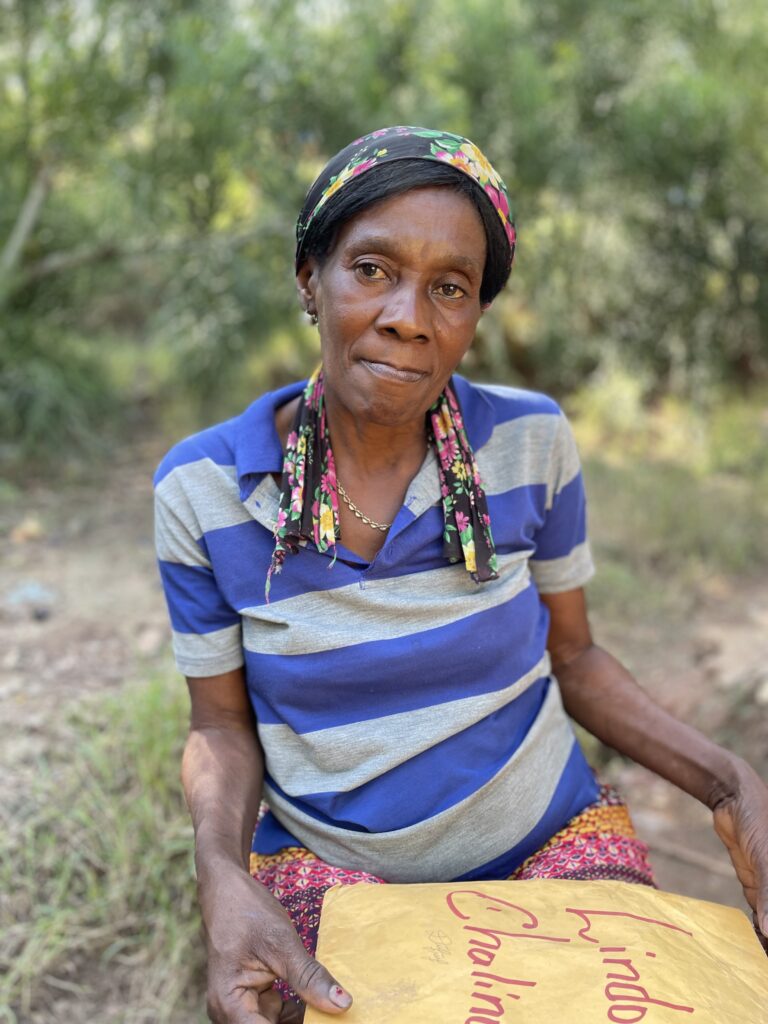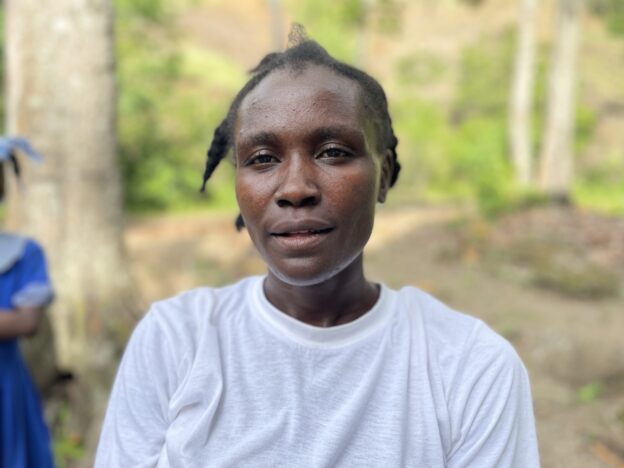Ifonia lives in Provo, a mountainous area of eastern Gwomòn. The region is split into multiple small neighborhoods, most of which are along the steep, rocky slopes that rise up from of the area’s many streams.
She’s from another rural part of Gwomòn, but as a young woman she was living in downtown Gwomòn, going to school there. “I would come home on Fridays and then go back downtown on Sundays with provisions. I wouldn’t carry a week’s worth, so one of my parents would visit during the week to check things out and bring more stuff.”
She was in the eleventh grade when she met Kenson. He liked her enough that he went to her parents to ask for her hand. “He gave me a ring and a set of earrings.”
Her parents agreed, but that was the end of her education. She moved in with Kenson, in his mother’s house, where they still live with their three boys. Kenson would support the household with farming, though he could occasionally get construction work with a brother-in-law, who is a construction foreman in Sen Mak. She reports that she has a good relationship with Kenson, though she cheerfully volunteers a series of platitudes about “how men are” as a note about her confidence in his fidelity.
Ifonia’s job was mainly to manage whatever money that Kenson brought it. “I couldn’t do commerce in the market because of the children, but if my husband gave me 50 gourds, I would spend 25 and then take the other 25 and turn it back into 50.” That means she’d make a small amount of money through trading despite the kids. She would occasionally leave them with her mother-in-law to go buy basic groceries at the market, which she’d then sell out of her home. It was nothing big, but it helped.
Joining the CLM program has opened Ifonia’s eyes to new possibilities. She started using the stipend that Fonkoze provides each week much as she uses the money her partner has always provided. She spends some of it on household expenses, and she adds some to her business. She might buy a small bag of cookies or crackers or candy that she then sells by the piece.
She also uses it to help manage a new weekly expense. The program offered her a chance to participate as a member of a savings and loan association, and she puts 250 gourds out of her 600-gourd stipend into savings.
The program provides funds for a business investment, and she chose to invest hers into livestock. She’s now raising goats. She bought two, and one is pregnant. She is hoping that they will reproduce and increase in value until she can sell some to buy a cow. She thinks it’s important to have animals of different sizes and, in particular, of different values. “There are problems you can solve by selling a chicken. You wouldn’t sell a goat to solve a chicken-size problem. You wouldn’t sell a cow to sell a goat-size problem. And there are cow-size problems, too.”
She is now getting ready to work on building a new house. She thinks she’s been living in her mother-in-law’s house too long already. She thought about building the new one on her father-in-law’s land, but people told her that the plot of land she was looking at is cursed, and she was reluctant to move onto cursed land with three small boys. So, she’ll stay on her mother-in-law’s land, but she’ll have her own separate house.
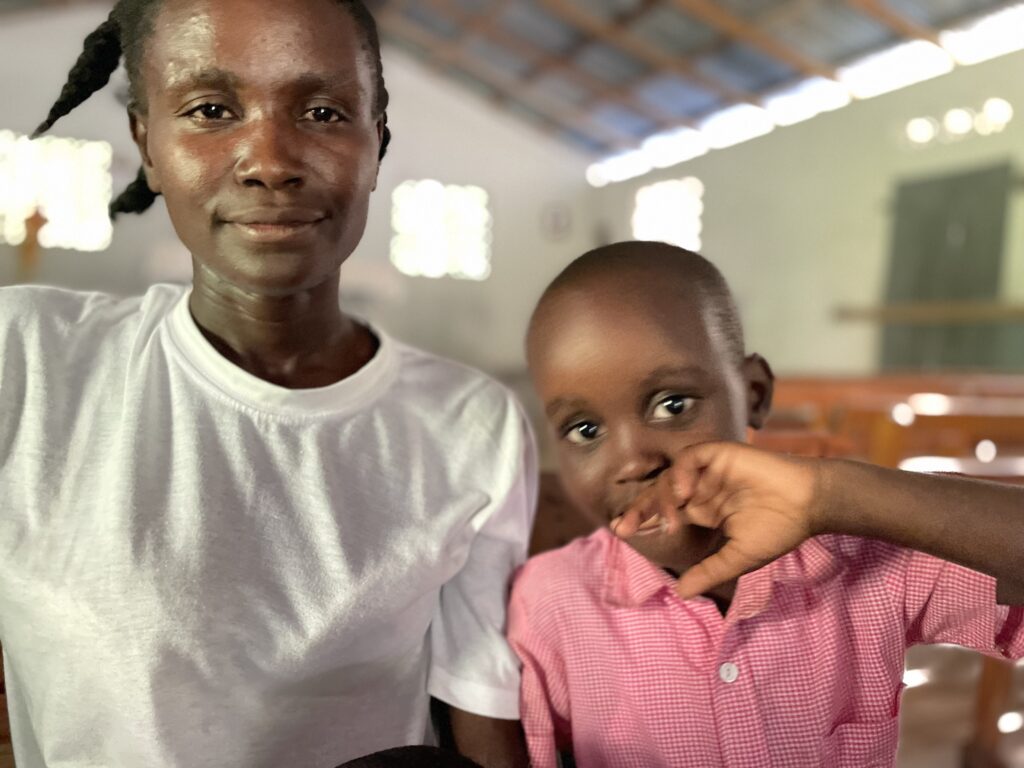
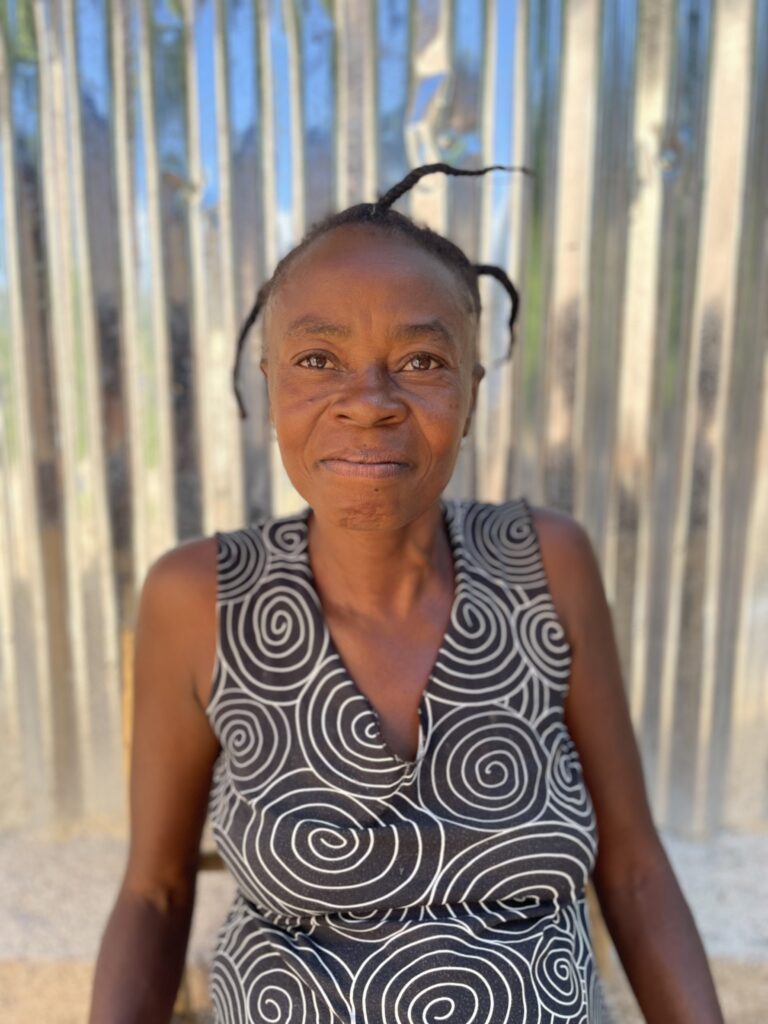
Chalesia lives high on another one of the area’s steep slopes. Her mother, she says, chose her husband for her when she was a 16-year-old 5th-grader. She and Nerveus have had eight children together, though they lost one.
Chalesia was angry with her mother when the older woman forced into the relationship with her husband. She thought she was too young to move in with a man. But she reports that it has worked out well for her. They now have a dependent grandchild, so Chalesia says that they have eight children once again. Five of the children still live with them in their home, including their grandchild.
The couple has always struggled, taking care of their children by working as day laborers in their neighbors’ fields. “If your husband goes out to work, you have to go as well.” Despite their small income, they always managed to send their children to at least a minimum of school. “They might not be advanced, but the can all read and write their names.”
When their first two children were born, they still lived with Chalesia’s mother. They moved into their own home just before Chalesia had their third child. By her reckoning, that was about 28 years ago. They have not be able to keep the home in goodrepair. “We never had the means.” By the time they joined CLM this year, the house was leaking so badly that it barely seemed livable. Chalesia used plastic bags underneath the tarp lining the ceiling of the hut, but they would fill with water in the rain, and everything inside the home would get soaked.
Normally, CLM families would have to do a lot before the team would be ready to help them with home repair. Installation of a latrine in every family’s yard usually comes first. That involves distributing Fonkoze’s contribution of the materials the families will need to install their latrines, and then hiring and paying the skill workers that perform the installation.
But in cases where a families is in bad straights and appears ready to make use of support early, the team can provide home repair materials together with the materials for latrine construction in a single transfer, and that’s what we did for Chalesia. She lost no time in marshaling the resources and the labor she’d need for her family to have a new home. She couldn’t afford all the lumber she needed, but because of her connection to the program, she was able to get the rest of the lumber on credit. Her home has been finished for a while now. The photo shows her new home next to her old one.
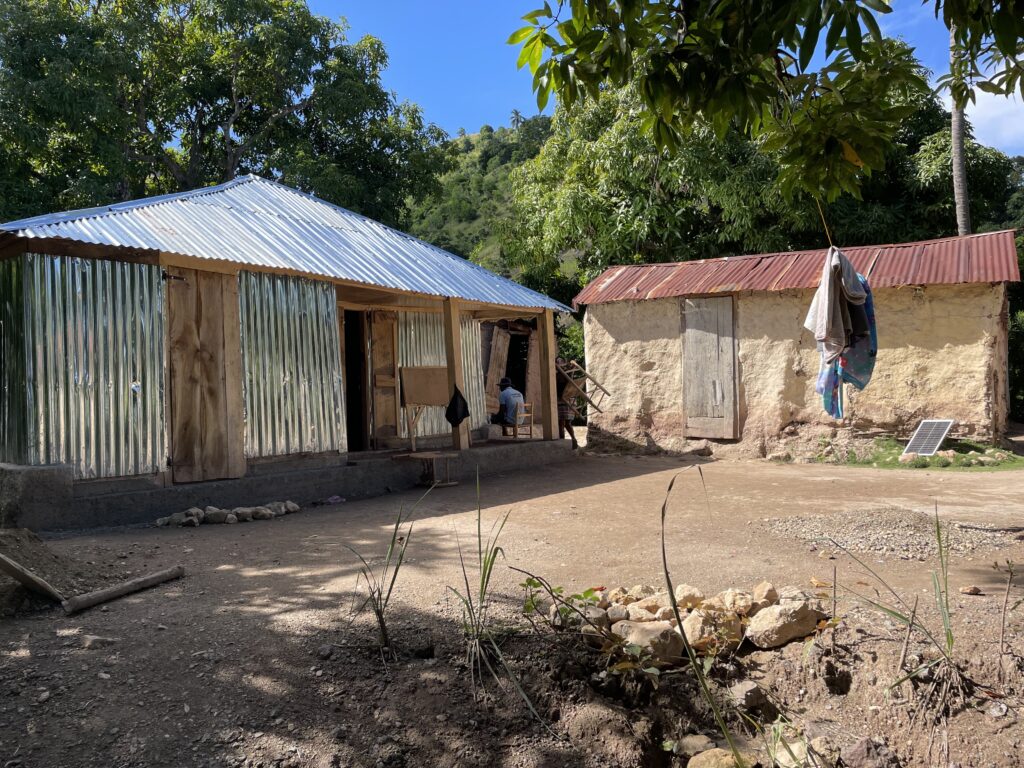
She chose to have the walls made with the corrugated metal that would ordinarily be used just for roofing. It was the easiest way to get things done quickly. But, as the photo below shows, all that rushing did not lead her to forego detail work cut into the lumber that is designed just to make her home pretty.
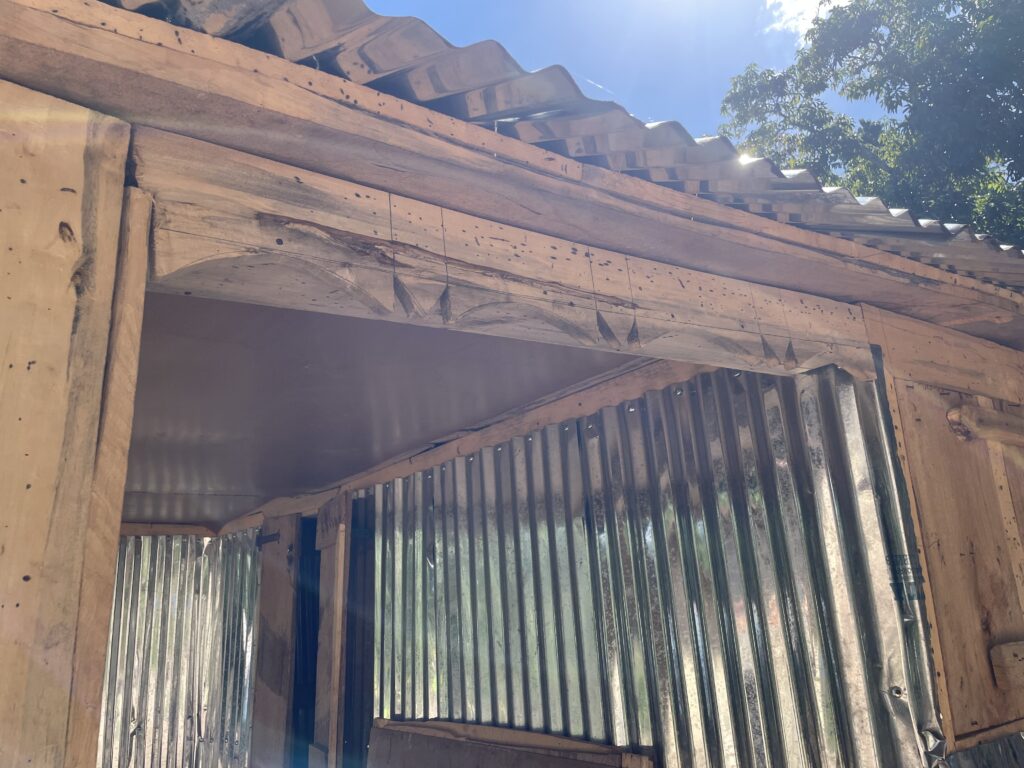
Whereas Ifonia used her weekly stipend much as she had always used the cash that Kenson brought into the home, Chalesia had to do some different things. She did buy a couple of chickens, but she also bought the sand she needed for her home’s construction.
Without other important things to do with the stipend, she had to think about how to ensure that she’d be able to make the weekly contribution to her savings group, and instead of simply taking 250 hours out each week’s stipend, she used a lump sum to by laundry products — mainly soap and detergent — which she sells out of her home.
She has a plan for her savings. When she receives her pay-out from the group at the end of 12 months, she wants to invest more in her business. But she doesn’t want to buy more laundry products. There’s only so much detergent she can sell. Instead, she will add a separate business, buying loads of local produce and bringing it to market for sale.
In the meantime, she’s used the money that Fonkoze provided as a business investment to buy livestock. She initially bought a goat and a pig, but she is ready to sell her pig already. She’s seen several of her neighbors’ pigs die in the last week. Pig rearing can enable someone to earn a lot of money fast, but it is risking because pigs’ health is fragile. Rather than continuing to take the risk, she plans now to sell her pig and use the proceeds to buy another goat or two. Raising goats is important, she says, because they provide a way to pay for school each year.
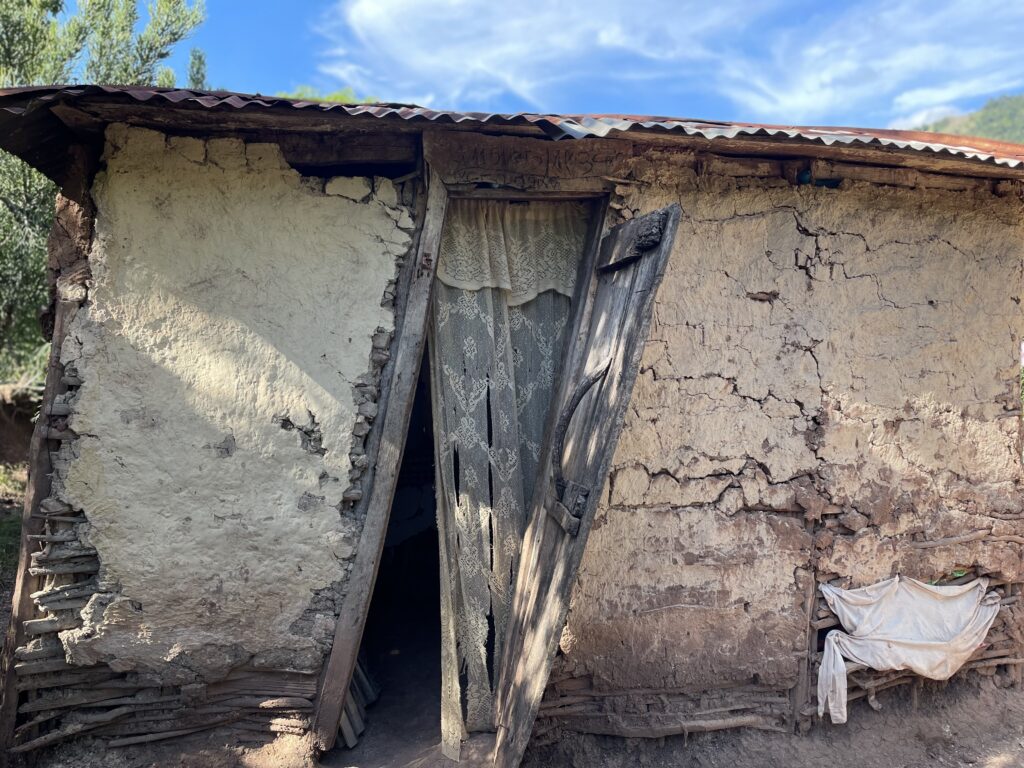
Chalina is another member who needed help with home repair right away. In her case, it was not only about a leaky roof. Her home appears ready to collapse. The leaning doorframe is a clear sign.
Her current boyfriend is helping her build her new home, but he’s not the father of any of her children. She thinks of him as a seriously improvement over the men she’s had children with, who haven’t treated her well.
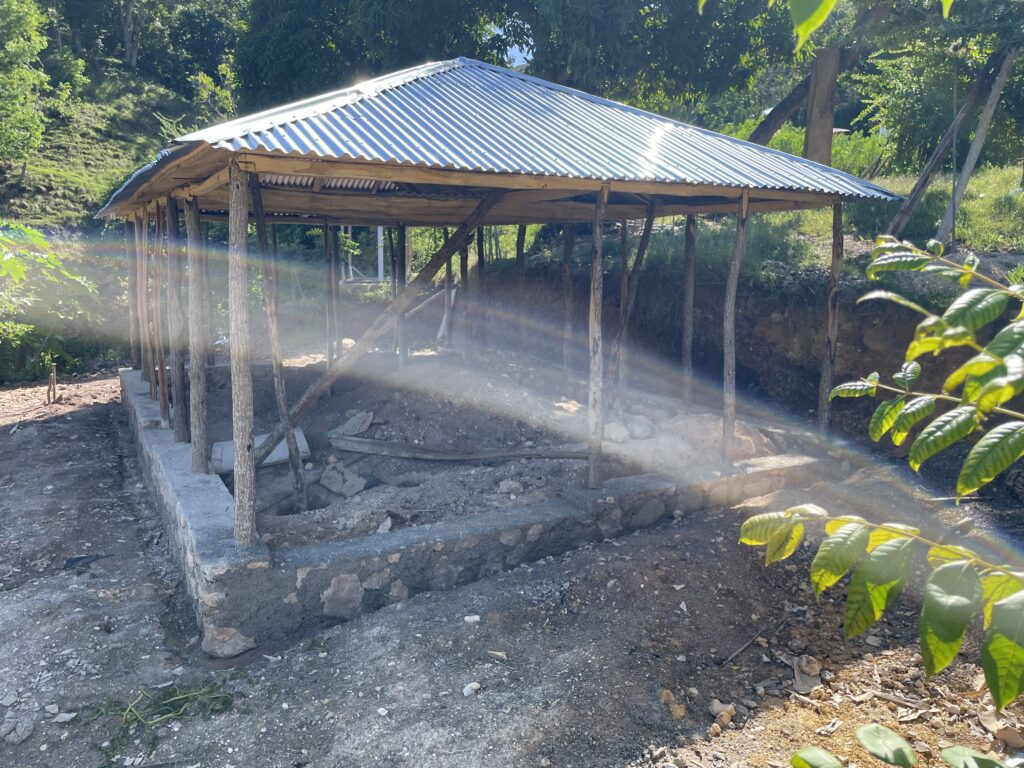
She has six children and three grandchildren living with her. Those six children have three different fathers, but the three men have always left the responsibility for the children with her. And it’s been a struggle. Several of the kids have spent time living with other families over the years. Chalina just couldn’t take care of them. But even though the children’s host families would send them to school, the kids would always choose to return to their mother. “People treated them badly.” So, Chalina fought to send them to school, counting on her fields, mostly planted with pigeon peas, for the money she’d need to do it.
She used her investment fund to buy livestock, but the investment has not borne much fruit so far. She bought a goat and a pig. Her goat died, and her pig became sick, so she is getting ready to sell it so she can invest in goats instead.
She has been saving in her savings group, and that is where she’s really placed her hopes. After a year, she will receive a pay out of all her savings along with her share of whatever interest the group has earned through loans, and Chalina wants to invest her payout into commerce.
She foresees a problem with commerce, but she thinks she has figured out what might be a solution. Commerce is hard to sustain, she says, where she lives, because some of her neighbors are jealous of CLM members and don’t want to buy from them. And even if they do buy from them, they can want to buy on credit and then use the fact that the seller has received grants from Fonkoze as an excuse for not paying. So, rather than attempting one of the standard forms of day-to-day commerce, she plans to buy up beans and peanuts at harvest and then store them in her new, dry home until the next planting season season, when the prices will be higher because people need the seeds.
It won’t give her a constant flow of income, but she could make several lump sums a year, and since she has always depended on her own harvest, this form of income is not new to her. “If you don’t know how to manage your money, it will just disappear.”
